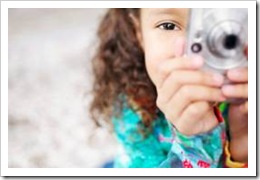
The term “self-esteem” comes from a Greek word meaning, “reverence for self”.
“Reverence” means “respect, admiration, worship, awe, astonishment and amazement”.
The “self” part of self-esteem, as I have described in the early chapters of this mini-course, includes the values, beliefs and attitudes that we hold about ourselves.
The “esteem” part of self-esteem, means having “high regard” or a “good opinion” of our values, beliefs and attitudes.
Whether you choose the two simple words “Self Esteem” or the 3 Greek words “reverence for self”, it seems that self-esteem, for most, is having an identity crisis and is in urgent need of therapy.
Ms Self Esteem is asking “Who am I”?
Since launching this course, I have had many questions about the definition of self-esteem. It is amazing to discover how diverse and deep the meanings can be (well, any discovery is amazing). So I have decided to take Ms Self Esteem (some will say it is a Mr) to the experts to discuss this crisis.
 According to Rosenberg (1965), self-esteem is a “favorable or unfavorable attitude towards the self”.
According to Rosenberg (1965), self-esteem is a “favorable or unfavorable attitude towards the self”.
Blascovich & Tomaka (1991) refer to an individual’s sense of his or her value or worth, or the extent to which a person values, approves of, appreciates, prizes, or likes him or herself.
Wikipedia gives us the following definition: “self-esteem or self-worth includes a person’s subjective appraisal of himself or herself as intrinsically positive or negative to some degree.”
Another definition is “Self-esteem is the confidence and satisfaction a person has in him/herself”.
Sue and Jo, who conducted research about children and self-esteem, believe that “self-esteem is the acceptance of ourselves for who and what we are at any given time in our lives”.
While some of the definitions focus on high and low self-esteem, there are definitions focusing on healthy vs. poor self-esteem.
People with poor self-esteem are too focused on their current performances and use them to determine how they feel about themselves. They need external experiences to help them overcome their negative beliefs about themselves and they believe that good feelings are only temporary.
 People with healthy self-esteem know themselves and are still able to accept and to value themselves unconditionally. Such people have realistic knowledge of their strengths and weaknesses and accept themselves as worthy, without conditions.
People with healthy self-esteem know themselves and are still able to accept and to value themselves unconditionally. Such people have realistic knowledge of their strengths and weaknesses and accept themselves as worthy, without conditions.
Nathaniel Branden talks about the 6 pillars of self-esteem:
- Integrity (matching what you say with what you do; keeping your word communicates that your word and thereby yourself, matters)
- Self-awareness
- Purposefulness
- Taking responsibility
- Self-acceptance
- Self-assertiveness (standing up for yourself)
Dr Robert Brooks (Great Schools) believes that “Self-esteem includes the feelings and thoughts we have about our competencies and worth, our abilities to make a positive difference, our level of optimism, our willingness to confront rather than retreat from realistic challenges, our capacity to learn from both our successes and failures, and our ability to treat ourselves, as well as others, with respect”.
Teen Health Centre’s definition is “Self-esteem is how much a person likes, accepts, and respects himself overall as a person”.
Tal D. Ben-Shahar divides self-esteem into three separate parts: dependent, independent, and unconditional self-esteem.
 “Dependent self-esteem” means that a person’s worthiness is determined by others (important decisions are made based on other people’s approval) and competence is compared to others. Most psychologists use this definition of self-esteem (just like the witch in Snow White needing the mirror to tell her that she is pretty).
“Dependent self-esteem” means that a person’s worthiness is determined by others (important decisions are made based on other people’s approval) and competence is compared to others. Most psychologists use this definition of self-esteem (just like the witch in Snow White needing the mirror to tell her that she is pretty).
With “Independent self-esteem“, worthiness is self-determined and competence is not compared to others but only to oneself.
In “Unconditional self-esteem“, worthiness is not contingent on anyone. Competence is interdependent. People with unconditional self-esteem are interdependent and see themselves as one with others.
It is important to keep in mind that self-esteem follows an epigenetic model – one needs to get past the first stage to be able to move to the second stage and so forth. The significance of this is that everyone experiences dependent self-esteem but is also able to cultivate independent self-esteem and then, potentially unconditional self-esteem.
In research that was published on April 28, 2008 in the Journal of Personality, Chad Lakey and Whitney Heppner, both doctoral students in the UGA Social Psychology Program, define self-esteem as either “secure” or “fragile“.
They believe that high self-esteem is not better than low self esteem if it is fragile and can easily turn bad. “One of the ways in which high self-esteem can turn bad is when it is accompanied by verbal defensiveness – lashing out at others when a person’s opinions, beliefs, statements or values are threatened”.
 Based on their findings, “Individuals with low self-esteem or fragile high self-esteem were more verbally defensive than individuals with secure high self-esteem.
Based on their findings, “Individuals with low self-esteem or fragile high self-esteem were more verbally defensive than individuals with secure high self-esteem.
One reason for this is that potential threats are, in fact, more threatening to people with low or fragile high self-esteem than those with secure high self-esteem, and so they work harder to counteract them”.
On the other hand, individuals with secure high self-esteem appear to accept themselves “warts and all” and, feeling less threatened, they are less likely to be defensive by blaming others or providing excuses when they speak about past transgressions or threatening experiences.
Self Esteem – Catch 22
Now you tell me, how would you think and feel and what would you believe about yourself if many different people believed so many different things about you? Would you feel worthy? appraised? healthy? Would you have self-value. Would your self value be unconditional, secure or fragile?
I tried to imagine myself as poor Ms Self Esteem and how she would feel, sitting in therapy, thinking about other people’s beliefs about her identity, and the first word that came into my mind was Schizophrenia.
 She would surely feel like she was so many different people if she were to base her self esteem on what others thought of her. This would then only be made worse by the fact that most of the therapists and other experts that deal with such issues, do talk a lot about how others view you, but never seem to talk about how to go about feeling better yourself – about developing your own beliefs: your own self esteem.
She would surely feel like she was so many different people if she were to base her self esteem on what others thought of her. This would then only be made worse by the fact that most of the therapists and other experts that deal with such issues, do talk a lot about how others view you, but never seem to talk about how to go about feeling better yourself – about developing your own beliefs: your own self esteem.
Many people say to me that working on self-esteem is hard because the definition of self esteem is so broad. My solution for you is to pick the definition that fits most comfortably with what you think, believe and feel and follow that definition to increase your self-esteem.
As I say to my students, “You can sit on a chair, on the floor – you can sit on your head, as far as I am concerned – as long as you do your assignment well. If it helps you, go for it!”
I think the real problem with self-esteem is that it is a Catch 22, the same as health and wealth and many more things in our life.
The more self-esteem you have, the more self-esteem you can gain.
The more money you have, the more money you can make.
The healthier you are, the more you can take care of your health.
Self-esteem is a cycle. What happens to us (our successes or failures) affects our self-esteem, which in turn influences our beliefs, attitudes and actions, which then influence our self-esteem. This then affects how we react to things, which then also influences what happens to us, and so it goes on…
Where are you in the cycle?
Join me next time for another chapter of the “Self Esteem Mini-Course” or subscribe to my posts via RSS or email.
I encourage you to add your comments in the box below. Share your thoughts and experiences with me and with the other readers.
Happy day,
Ronit
This post is part of the series Self Esteem Mini-Course:
- What Is Self Esteem?
- How School Promotes Low Self Esteem
- Beliefs and Where They Come From
- Social Identity
- Service Your Self-Esteem
- Your Self-Esteem Checklist
- How to Get Rid of Doubts
- Assertiveness and Self Esteem
- How to Be Assertive
- Beliefs of Assertive People
- Ronit Baras’ Success Experience Theory
- Ms Self Esteem has an Identity Crisis
- 13 Useful Conflict Resolution Steps You Need to Know
- Watch Your language or Lose Your Kids’ Trust
- War Between Two Minds
- What if
- What do I Think?
- Awareness is Half the Solution
- Damaging Kids’ Self Esteem
- Boosting Kids’ Self Esteem











